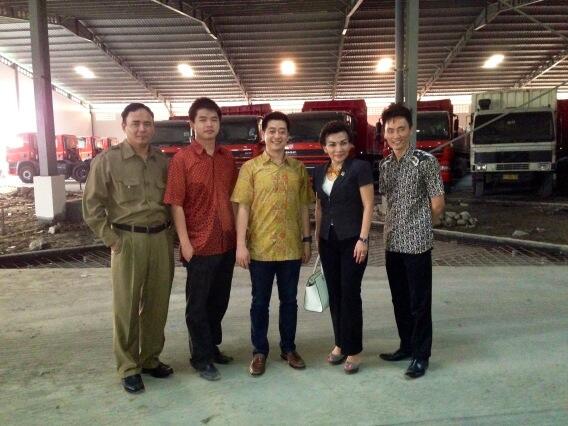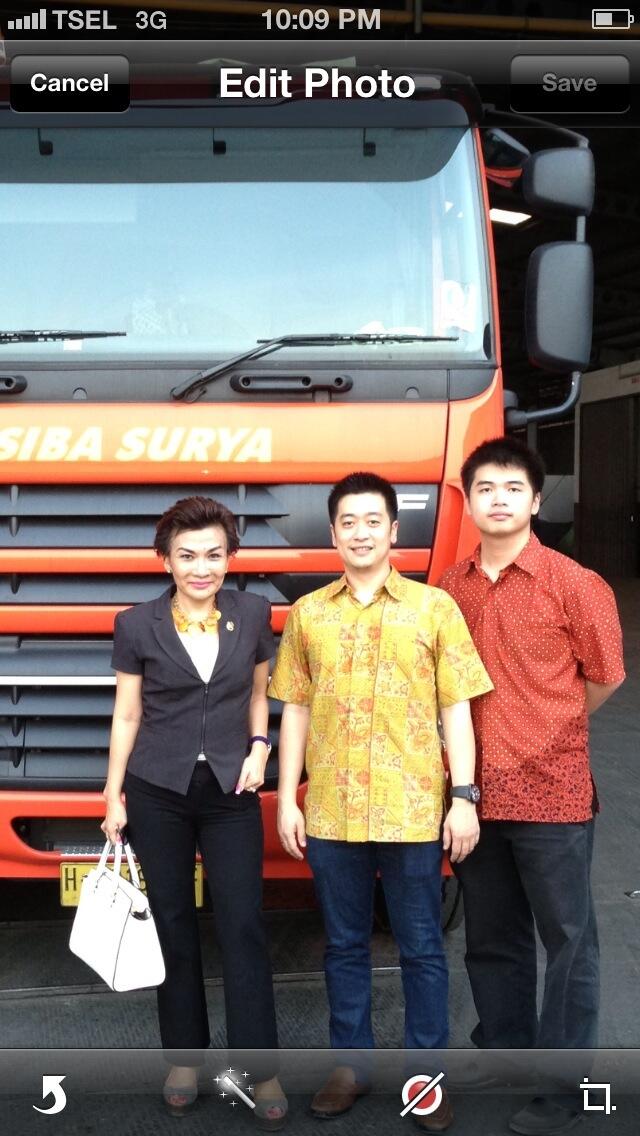Influential
people aren't just born; they're made. A new book reveals the two
personality traits you must cultivate to be more compelling.
August 22, 2013
Everyone
wants to know how to be more influential. But most of us don't really
think we can have the kind of charisma we associate with someone like
Bill Clinton, Oprah Winfrey or Jon Stewart unless it comes naturally.
But according to KNP Communications founders John Neffinger and Matthew Kohut, having a magnetic personality is something anyone can learn, and they show us how in their new book, Compelling People: The Hidden Qualities That Make Us Influential. The book is dynamic enough that it's already being taught at Harvard, Columbia and Georgetown.
To learn to be more compelling, it helps to know how people make personality judgments about others. It turns out that when we decide how we feel about someone, we make not just one judgment, but two. The two criteria that count are what we call "strength" and "warmth." Strength is a person's capacity to make things happen with ability and force of will. When people project strength, they command our respect. Warmth, on the other hand, is the sense that a person shares our feelings, interests and view of the world. When people project warmth, we like and support them.
Of course, knowing that strength and warmth matter to people is one thing, but acting on that insight turns out to be tricky. Here's the thing: It's very difficult to project both at once, because strength and warmth are in direct tension with each other. The ability to master this balancing act is so rare that we celebrate, elevate and envy those people—like Martin Luther King Jr., Ronald Reagan and John Kennedy—who've managed to do it.
I caught up with co-author Kohut to ask him a few questions on the art of influence.

Is it better to be loved or feared?
Back in medieval Florence, Machiavelli recommended choosing fear over love, strength over warmth, a competitive strategy over a cooperative one. This makes perfect sense in dog-eat-dog situations where cooperation is not likely to be reciprocated and there are no social forces to sanction excessive strength. In our more civilized society, however, research suggests that when people size each other up, warmth is more important. The challenge is how to get past that choice and be both at once.
What did Sheryl Sandberg, the author of Lean In, get wrong about how women are seen in the workplace?
First of all, Sheryl Sandberg is a good example of balancing strength and warmth—she is hard-charging and gets things done, but in public, she's almost always smiling and happy too. She's also done a tremendous service by reinvigorating the conversation about women in the workplace. She undercuts her own argument in one key spot: In Lean In, she writes, "If a woman is competent, she does not seem nice enough. If a woman seems really nice, she is considered more nice than competent."
The word "competent" comes from the research, but it misses a key part of the story. There are plenty of professional women who seem both very competent and very nice, but not strong, standing up for themselves, assertive or leaning in. There is more to strength than just technical competence: it's not just skill, it's will. She's right that projecting strength does hurt perceptions of a woman's warmth in a professional setting, so to avoid being seen negatively when they lean in, women also have to actively project lots of warmth.
What's the single best way to get someone to agree with you?
If you want someone to agree with you, the best way to make that happen is to agree with them about something first. When you agree with people, you're confirming their view of the world, and that feels good to them. When you express familiar sentiments, you also seem more familiar and less likely to upset them or threaten their worldview, so their anxiety level goes down and they feel more comfortable. People like it when you make them feel good, and then they associate that good feeling with you, so they like you. And that makes them more likely to agree with you.
You talk about the most powerful phrase in politics. Is that all I need to be president?
The most powerful phrase in politics is "common sense." Every candidate for president wants to be the candidate who stands for common sense, because most voters see themselves as common-sense people. On one level, candidates use this phrase to say they're practical and grounded. It also resonates on a deeper level because common sense suggests you have a shared, or common, sense of the way things are in life. So common sense is both pragmatic and a gut-level feeling, which makes it so important in a political context.
What are some techniques for projecting warmth?
The most common thing we all do to project warmth is to smile. We equate all kinds of good things with people who smile. Teachers are more likely to call on smiling students. People who work in restaurants get better tips when they smile at customers. Beyond smiling, if you want to project warmth toward people, you have to feel warmth for people. When you sense the need to make a deeper connection, ask yourself, What are our shared concerns and interests? How can I make it clear that we want the same things or are on the same team?
You write that our looks affect our career prospects. How so?
Beauty has a kind of a blinding effect on our judgment. For instance, research shows we judge writing more favorably if we find the author attractive, and attractive people make more money. At the other end of the spectrum, when someone’s mouth naturally forms a frown, that can cause social problems because people will associate that expression with how the person feels. Bad moods are socially contagious, so people may avoid you or approach with caution. The good news is, this can be overcome by actively smiling a lot to counteract this effect.
What's the one thing you want readers to take away from this book?
Once you recognize the dynamics of strength and warmth, you see people—yourself, your loved ones, your colleagues, random strangers, everybody—in a new way. And if you understand how to project your own strength and warmth, you will change the way people see you.
But according to KNP Communications founders John Neffinger and Matthew Kohut, having a magnetic personality is something anyone can learn, and they show us how in their new book, Compelling People: The Hidden Qualities That Make Us Influential. The book is dynamic enough that it's already being taught at Harvard, Columbia and Georgetown.
To learn to be more compelling, it helps to know how people make personality judgments about others. It turns out that when we decide how we feel about someone, we make not just one judgment, but two. The two criteria that count are what we call "strength" and "warmth." Strength is a person's capacity to make things happen with ability and force of will. When people project strength, they command our respect. Warmth, on the other hand, is the sense that a person shares our feelings, interests and view of the world. When people project warmth, we like and support them.
Of course, knowing that strength and warmth matter to people is one thing, but acting on that insight turns out to be tricky. Here's the thing: It's very difficult to project both at once, because strength and warmth are in direct tension with each other. The ability to master this balancing act is so rare that we celebrate, elevate and envy those people—like Martin Luther King Jr., Ronald Reagan and John Kennedy—who've managed to do it.
I caught up with co-author Kohut to ask him a few questions on the art of influence.

Is it better to be loved or feared?
Back in medieval Florence, Machiavelli recommended choosing fear over love, strength over warmth, a competitive strategy over a cooperative one. This makes perfect sense in dog-eat-dog situations where cooperation is not likely to be reciprocated and there are no social forces to sanction excessive strength. In our more civilized society, however, research suggests that when people size each other up, warmth is more important. The challenge is how to get past that choice and be both at once.
What did Sheryl Sandberg, the author of Lean In, get wrong about how women are seen in the workplace?
First of all, Sheryl Sandberg is a good example of balancing strength and warmth—she is hard-charging and gets things done, but in public, she's almost always smiling and happy too. She's also done a tremendous service by reinvigorating the conversation about women in the workplace. She undercuts her own argument in one key spot: In Lean In, she writes, "If a woman is competent, she does not seem nice enough. If a woman seems really nice, she is considered more nice than competent."
The word "competent" comes from the research, but it misses a key part of the story. There are plenty of professional women who seem both very competent and very nice, but not strong, standing up for themselves, assertive or leaning in. There is more to strength than just technical competence: it's not just skill, it's will. She's right that projecting strength does hurt perceptions of a woman's warmth in a professional setting, so to avoid being seen negatively when they lean in, women also have to actively project lots of warmth.
What's the single best way to get someone to agree with you?
If you want someone to agree with you, the best way to make that happen is to agree with them about something first. When you agree with people, you're confirming their view of the world, and that feels good to them. When you express familiar sentiments, you also seem more familiar and less likely to upset them or threaten their worldview, so their anxiety level goes down and they feel more comfortable. People like it when you make them feel good, and then they associate that good feeling with you, so they like you. And that makes them more likely to agree with you.
You talk about the most powerful phrase in politics. Is that all I need to be president?
The most powerful phrase in politics is "common sense." Every candidate for president wants to be the candidate who stands for common sense, because most voters see themselves as common-sense people. On one level, candidates use this phrase to say they're practical and grounded. It also resonates on a deeper level because common sense suggests you have a shared, or common, sense of the way things are in life. So common sense is both pragmatic and a gut-level feeling, which makes it so important in a political context.
What are some techniques for projecting warmth?
The most common thing we all do to project warmth is to smile. We equate all kinds of good things with people who smile. Teachers are more likely to call on smiling students. People who work in restaurants get better tips when they smile at customers. Beyond smiling, if you want to project warmth toward people, you have to feel warmth for people. When you sense the need to make a deeper connection, ask yourself, What are our shared concerns and interests? How can I make it clear that we want the same things or are on the same team?
You write that our looks affect our career prospects. How so?
Beauty has a kind of a blinding effect on our judgment. For instance, research shows we judge writing more favorably if we find the author attractive, and attractive people make more money. At the other end of the spectrum, when someone’s mouth naturally forms a frown, that can cause social problems because people will associate that expression with how the person feels. Bad moods are socially contagious, so people may avoid you or approach with caution. The good news is, this can be overcome by actively smiling a lot to counteract this effect.
What's the one thing you want readers to take away from this book?
Once you recognize the dynamics of strength and warmth, you see people—yourself, your loved ones, your colleagues, random strangers, everybody—in a new way. And if you understand how to project your own strength and warmth, you will change the way people see you.
===============




